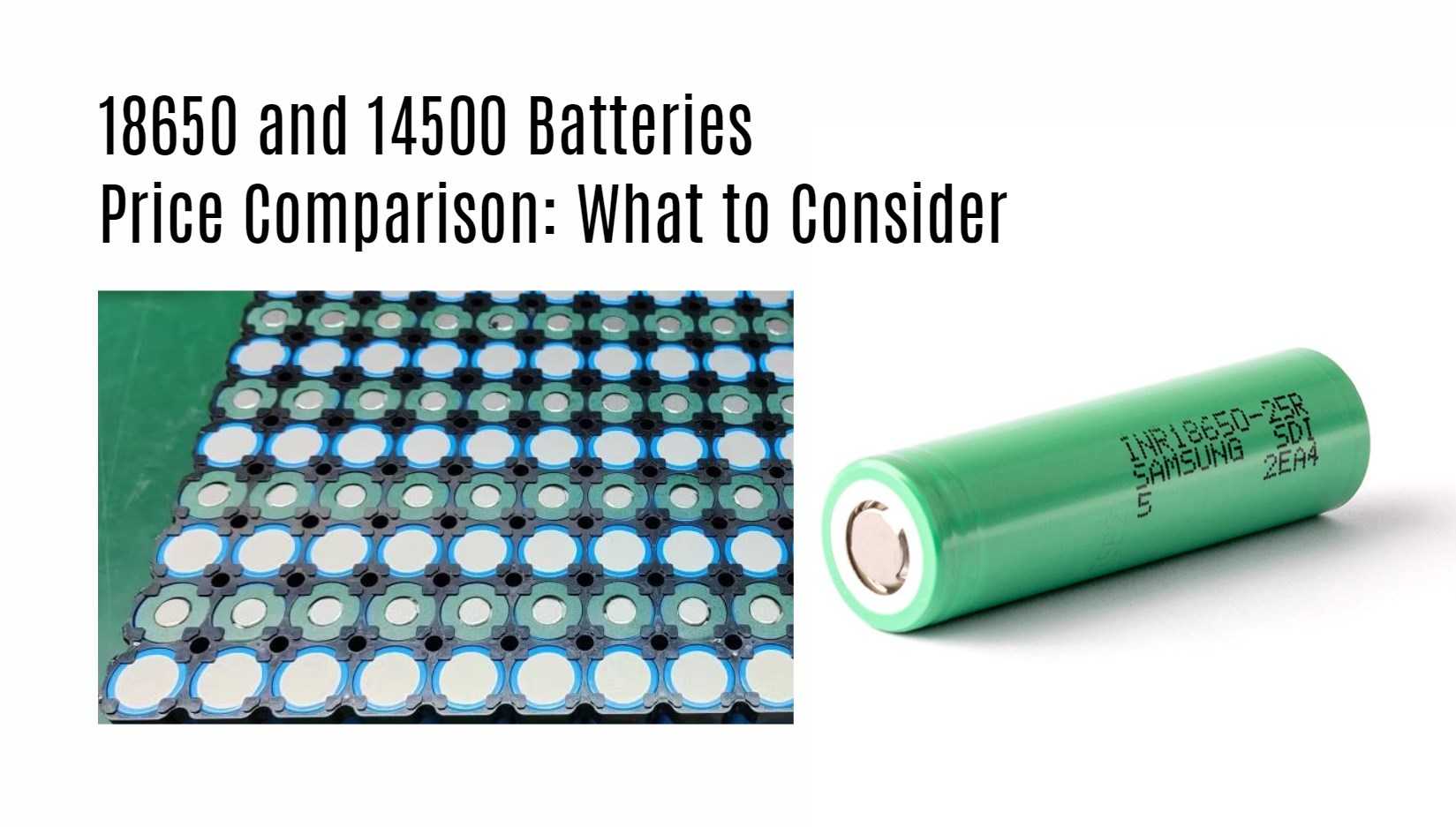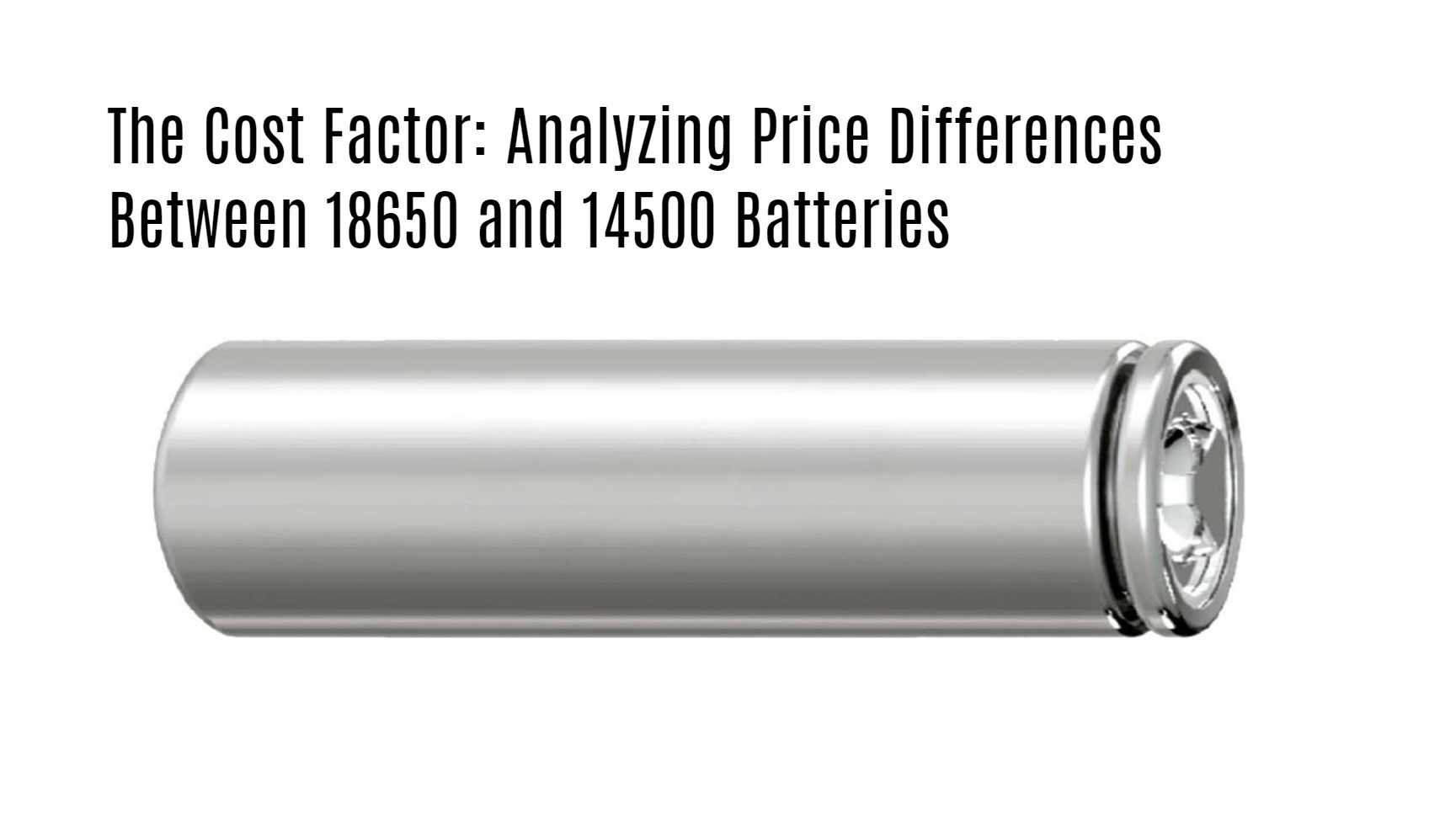Are you in the market for batteries but feeling overwhelmed by the multitude of options available? Whether you’re a tech enthusiast, a DIY hobbyist, or just someone looking to power up your devices efficiently, understanding the differences in battery types can be crucial. In this blog post, we delve into the world of 18650 and 14500 batteries, comparing prices and helping you make an informed decision on which one suits your needs best. Let’s shed some light on the cost factor and empower you to choose wisely!
Key Differences Between 18650 and 14500 Batteries
When it comes to choosing the right battery for your devices, understanding the key differences between 18650 and 14500 batteries can be crucial.
First off, size matters. The 18650 is larger in diameter and length compared to the 14500, offering higher capacity and longer run times.
Next up is capacity. The 18650 typically has a higher mAh rating than the 14500, meaning it can store more energy and last longer between charges.
Voltage output is another differentiating factor. While both batteries have similar voltages when fully charged, the discharge curve of the 18650 tends to hold voltage better under load compared to the 14500.
Compatibility should also be considered. Make sure you check if your device can accommodate either battery type before making a purchase decision.
Price Comparison: What to Consider
When it comes to choosing between 18650 and 14500 batteries, one key aspect to consider is the price difference. Understanding what drives these variations can help you make an informed decision.
Factors such as battery capacity, brand reputation, and manufacturing quality can all impact the price of a battery. Higher capacity batteries tend to be more expensive but offer longer usage times between charges.
It’s essential to evaluate your specific needs before making a purchase. If you require higher power output or longer-lasting performance, investing in a pricier battery might be worth it in the long run.
Comparing prices from different retailers and online stores can also help you find the best deal. Keep an eye out for promotions or bulk discounts that could save you money on your battery purchase.
Finding the right balance between cost and performance is crucial when selecting a battery that meets your requirements without breaking the bank.

Factors Affecting Battery Prices
When it comes to the price of batteries, there are several factors that come into play. The first factor is the type and brand of the battery. Higher quality brands tend to have a higher price tag due to their reputation for reliability and performance.
Another key factor is the capacity of the battery. Batteries with larger capacities typically cost more as they can hold more energy, providing longer usage times between charges.
The materials used in manufacturing also impact prices. Batteries made with premium materials may be pricier than those made with standard materials but often offer better longevity and overall performance.
Additionally, market demand and supply fluctuations can influence battery prices. High demand or limited supply can drive prices up, while oversupply may lead to lower prices on the market.
Technological advancements in battery production can affect prices too. Newer technologies often come at a higher cost initially but may offer improved efficiency and lifespan in return.
Which Battery Is Right for You?
When it comes to choosing the right battery for your needs, considering factors like size, capacity, and intended use is crucial.
If you require a higher capacity and longer runtime, the 18650 battery might be the better option due to its larger size. On the other hand, if you prioritize portability and space-saving features, the 14500 battery could be more suitable.
Think about how you will be using the batteries – Are they for high-drain devices like flashlights or low-power gadgets like remote controls? Understanding your usage patterns can help determine which battery type aligns best with your requirements.
Additionally, consider your budget constraints as prices vary between these two types of batteries. It’s essential to weigh the cost against performance benefits when making your decision.
Selecting the right battery boils down to balancing factors such as size, capacity, usage scenarios, and budget considerations. Take time to assess your specific needs before making a choice that suits you best.
Tips for Purchasing and Using Batteries Wisely
When it comes to purchasing batteries, there are a few tips to keep in mind. Always check the specifications of the battery to ensure it meets your device’s requirements. It’s important to buy from reputable sources to guarantee quality and authenticity.
Before making a purchase, compare prices from different retailers to get the best deal without compromising on quality. Consider buying in bulk if you use batteries frequently as it can be cost-effective in the long run.
Properly store your batteries in a cool, dry place away from direct sunlight or extreme temperatures. Avoid overcharging or discharging your batteries as it can reduce their lifespan significantly.
Recycle old batteries responsibly to minimize environmental impact and ensure safety. By following these tips, you can make informed decisions when purchasing and using batteries for your devices.
Conclusion
When it comes to choosing between 18650 and 14500 batteries, consider your specific needs and budget. While 18650 batteries may have a higher upfront cost, they often offer better performance and longer lifespan compared to 14500 batteries. However, if you are looking for a more affordable option for less demanding applications, the 14500 battery could be a suitable choice.
Remember to always purchase batteries from reputable sources to ensure quality and safety. Additionally, follow manufacturer guidelines for proper usage and storage to maximize the lifespan of your batteries. By understanding the key differences in price factors between these two types of batteries and making an informed decision based on your requirements, you can optimize your investment in powering various devices effectively.




